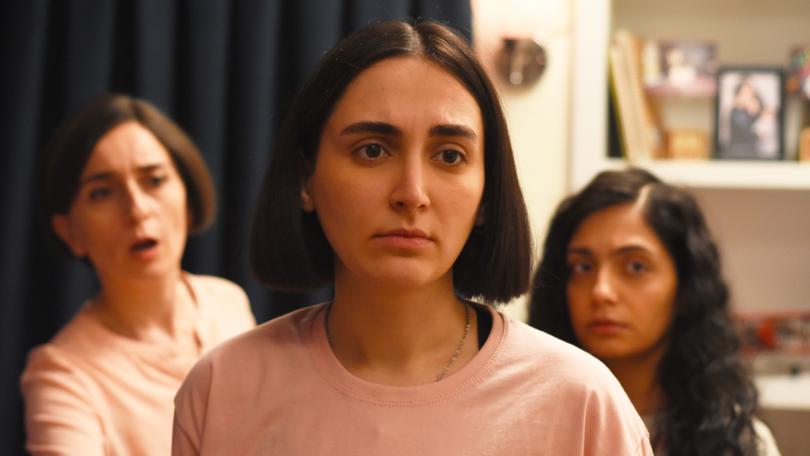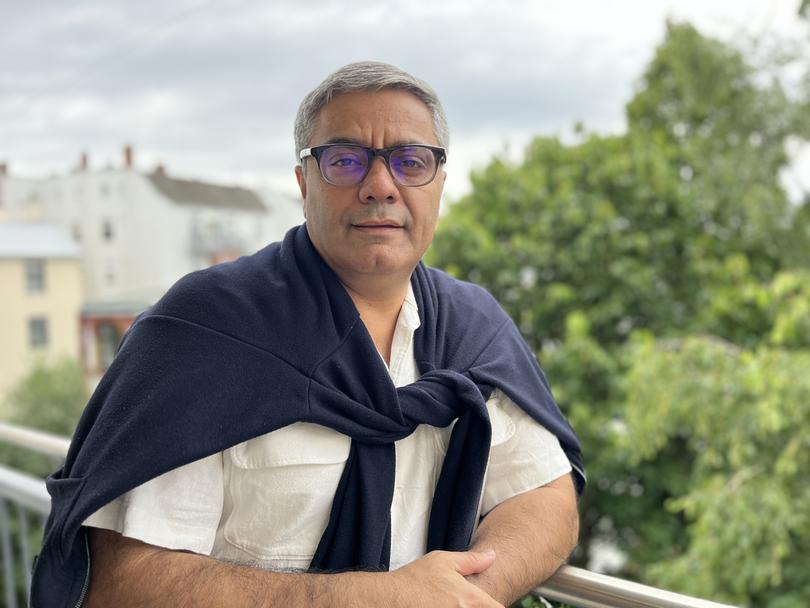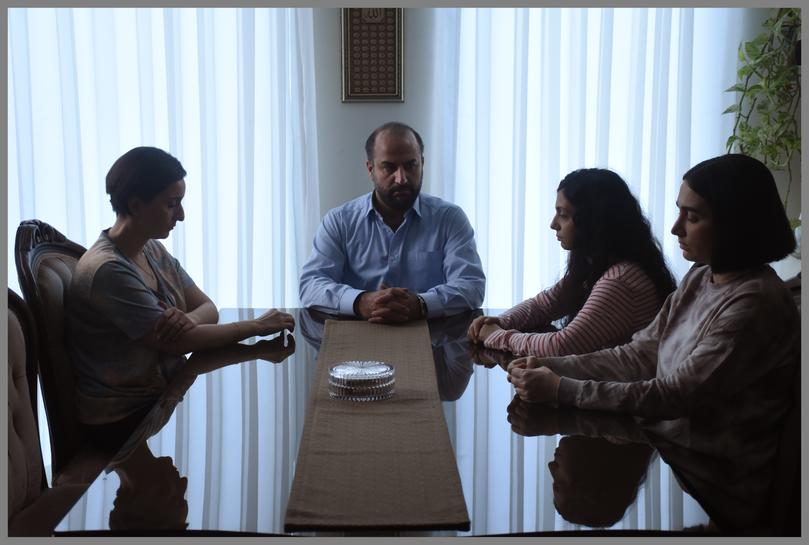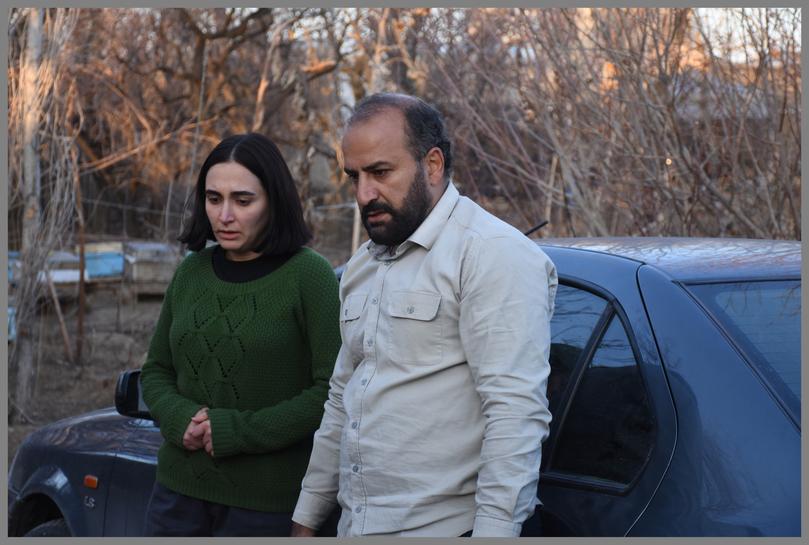How The Seed of the Sacred Fig’s Mohammad Rasoulof shot his film in secret and then had to flee Iran
Nominated for an Oscar, The Seed of the Sacred Fig was filmed in secret. Then its director had to flee his homeland or face eight years in prison.

When filmmaker Mohammad Rasoulof was shooting his movie, The Seed of the Sacred Fig, at the end of each day, he’d say, “It’s great that were not arrested today, and let’s hope we’ll manage not to get arrested tomorrow”.
Rasoulof knew the stakes because he had spent time in prison before, locked up for violating the draconian censorship laws of the authoritarian Iranian government. It was during a previous stint in prison in 2022 when he conceived of The Seed of the Sacred Fig.
The Woman, Life, Freedom movement had seen women and men, especially young Iranians, take to the streets to protest the death-in-custody of Mahsa Amini, a 22-year-old woman who had been arrested for violating the country’s mandatory hijab laws.
Sign up to The Nightly's newsletters.
Get the first look at the digital newspaper, curated daily stories and breaking headlines delivered to your inbox.
By continuing you agree to our Terms and Privacy Policy.During his incarceration, Rasoulof observed how the protests changed the way officials treated himself and other political prisoners. A chance encounter sparked his creative juices.
“I heard lots of people working in the prison talking about how bad they felt about their job,” Rasoulof told The Nightly, through a translator. “This particular senior official told me how much he’d come to hate himself because of the job he did, that he was even thinking about taking his life.
“His wife and children kept criticising him very severely — ‘What is that kind of job? Why are you taking part in the repression of people?’. That’s when I thought how interesting it could be to tell a story about a family where such a major rift could take place between the parents and the children.”

Rasoulof was released months later and he started writing the script. This time last year, he and his small cast and crew were filming it in secret with Rasoulof mostly in a different location so that, if anyone saw them, it would appear as if it was an amateur student production.
Around the time the film was accepted into the 2024 Cannes Film Festival, the Iranian government cottoned on that Rasoulof, already an enemy of the regime, was the man behind it.
There were already legal proceedings against him in the works and he was sentenced to eight years in prison and a flogging for a raft of other previously accumulated charges. He had two hours to decide whether he would flee his homeland.
The journey took four weeks which included hiding out in a border village while waiting to stealthily cross over without his passport, which had been seized.
He now lives in Germany, where he has been granted asylum. His cast and crew have faced legal challenges — his director of photography had his office raided while actor Soheila Golestain was banned from leaving the country to serve on the jury of a film festival in The Netherlands, and faces charges of propaganda against the regime.
Every person who worked on the film understood the risks of being involved because, as Rasoulof explained, if you live in Iran, you innately know, it didn’t have to be explicitly laid out.

The Seed of the Sacred Fig is a family drama but it also works as a metaphor for the relationship between the government and its citizens.
The story is centred on one family, dad Iman (Missagh Zareh), mum Majmeh (Golestain), and teen daughters Rezvan (Mahsa Rostami) and Sana (Setareh Maleki).
Iman is an investigating judge in the Revolutionary Court when the 2022 protests break out and there’s a clash between him and his daughters, who side with the protesters.
“It’s a family drama that also has these psychological dimensions to it, but then as a unit, (the family) is connected to society in a very specific way because it has a specific relationship with the regime,” Rasoulof said.
“It’s important to remember that the government of Iran is only supported by a small minority of the population and that the great majority are dissidents, they are against the government.
“This is a portrait of one family from that minority, and because the family is subject to patriarchy and also the lack of rights of women, it transforms into a symbol of Iranian society.”

He said the film is clearly about authoritarianism and patriarchy and that his life has become inextricably linked with the same.
“In the end, you really cannot divide the two because my life reflects the struggles that you see in the film, and the themes of the film.”
After fleeing Iran, he was able to attend The Seed of the Sacred Fig’s world premiere in Cannes where it was well-received and has now been nominated for an Oscar in the international feature category. The submitting country was Germany.
“Our aim was something bigger than cinema itself. Our greatest concern was artistic freedom, and so now we are delighted that the film is really flying all around the world.”
Rasoulof said the situation is involving and in the 10 months since he left Iran, “major changes have taken place”, and cites the downfall of the Assad regime in Syria as a fundamental change in the region that has affected the identity of the Islamic Republic of Iran.
“In many decades, a number of protest movements in Iran have shown to the world that the regime is not representative of (the people) and that it is a small minority that has taken all of us hostage. An awareness has grown, a lot of people around the world are aware there’s a major divide between the people and the regime in Iran.”
He still believes he’ll be able to make another film in Iran one day: “Generally, whoever leaves their country against their own will is always ready to pack a suitcase and go back at the earliest opportunity.”
The Seed of the Sacred Fig is in cinemas on February 27
Lifeline: 13 11 14

